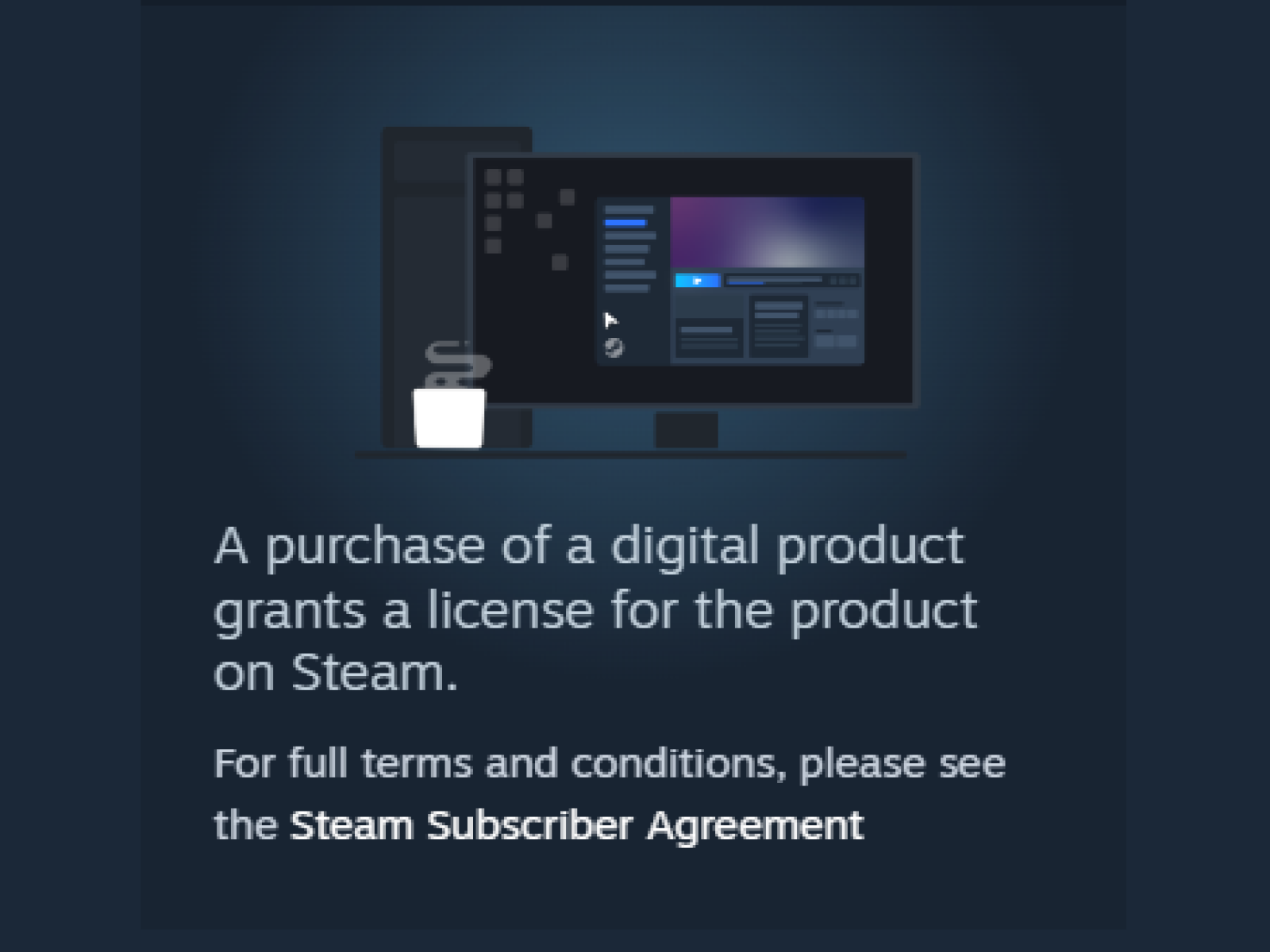
In a significant move, Steam has introduced an upfront warning to its customers, clarifying that they are purchasing a license, not a game, before continuing to payment. This change has been implemented ahead of a new Californian law set to come into effect in 2025, which aims to enhance consumer awareness regarding digital media purchases.
The recent amendment to Steam's checkout process emerged following the signature of California Governor Gavin Newsom on law AB 2426. This law mandates digital marketplaces to explicitly inform customers that purchasing digital media grants them a license rather than unrestricted ownership.
The adoption of this new warning is a response to growing concerns over consumer rights in the digital age, where physical media is becoming increasingly obsolete. Players have frequently found themselves losing access to games they believed they owned due to company decisions or licensing agreements.
What Is the AB 2426 Law?
The AB 2426 legislation prohibits online storefronts from using phrases like "buy" or "purchase" in contexts that could imply permanent ownership. Instead, companies must ensure their language accurately reflects the limited nature of digital licenses, which may revoke access at any time.
This law aims to address several troubling incidents in the gaming world, such as the controversial removal of games from Steam libraries when servers are shut down. Notably, Ubisoft faced backlash after disabling online access to titles like The Crew due to server closures, restricting players who had purchased the games from playing them.
The Importance of Clear Communication
As the gaming industry shifts towards digital transactions, it is paramount that companies establish clear communication with their customers. The new warning in Steam's shopping cart states, "A purchase of a digital product grants a license for the product on Steam," reiterating the importance of understanding the nature of digital ownership.
This transparency is vital for maintaining fairness in business practices and ensuring that consumers are fully informed about their rights when purchasing digital content. The warning is notably positioned just below the 'Continue to payment' button, emphasizing its significance.
Global Implications of the Change
Interestingly, despite this law being specific to California, Steam has opted to apply the warning in various regions worldwide, including the UK. This proactive approach indicates a shift in the industry's attitude towards digital product ownership and consumer rights.
As retailers evolve away from physical products, ensuring robust consumer protections for digital media is increasingly vital. As California Assembly member Jacqui Irwin noted, the legislation symbolizes a transition in understanding digital ownership and digital rights management in the gaming community.
The Future of Digital Game Ownership
While the AB 2426 law mandates that companies like Steam provide consumers with crucial information about their purchases, it does not fully prevent the removal of content from user libraries. It, however, holds companies accountable to inform consumers about the underlying nature of the licensing agreements they are entering.
As the gaming landscape continues to evolve, players must remain vigilant about their digital rights and advocate for further reforms to ensure fair treatment in purchasing digital goods. Understanding these policies will aid gamers in making informed decisions regarding their purchases.
The Role of Steam in Digital Rights Advocacy
Steam's recent policy change reflects a growing acknowledgment of consumer rights issues within the digital marketplace. By introducing clear license disclaimers, Steam may set a precedent for other platforms to follow, fostering a culture of transparency and respect for consumer rights.
This initiative will likely resonate well with audiences, as the importance of safeguarding consumer interests continues to gain prominence in discussions about digital media and technology.
Conclusion: Awareness is Key
In conclusion, the introduction of Steam's license warning represents a pivotal change in digital gaming purchases. Consumers now have greater awareness about their rights and the implications of the digital ownership model being employed by various platforms. Continuing to advocate for clarity and transparency will be essential as digital media becomes even more integral to the gaming experience.
For further insights and updates on digital ownership rights, gamers are encouraged to follow industry news and developments that affect their gaming experiences.





.webp)

